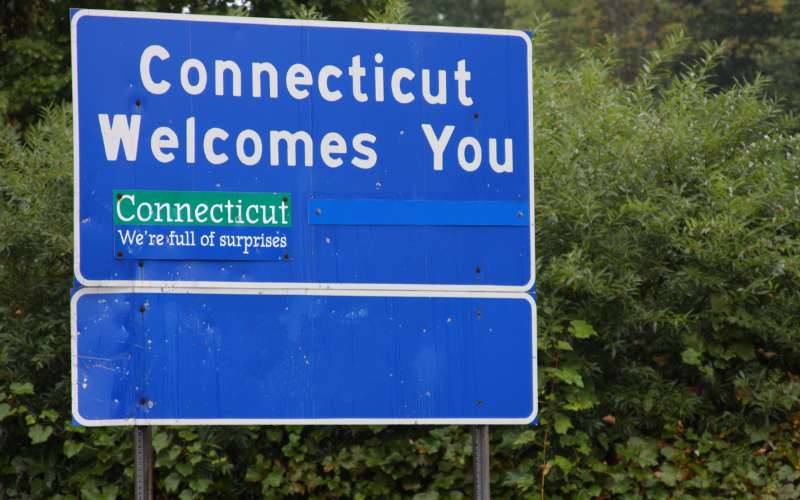Last Updated on March 18, 2024 by Kelvin Nielsen
No! Connecticut is among the list of the least landlord-friendly states in the country. State law (Connecticut General Statutes Title 47A) gives tenants more rights and protections than it does landlords.
The eviction process is relatively complicated, the state law limits how much security deposit a landlord can collect, and landlord repair and maintenance responsibilities are strict, among other things.
In this guide, we’ll walk you through everything that makes Connecticut tenant-friendly and not landlord-friendly.
What Makes Connecticut a Tenant-Friendly State?
The state of Connecticut is regarded as a tenant-friendly state for the following reasons.
#1: The eviction process is long.
Removing a tenant from your rental property is not going to be a smooth sailing process. Why? Basically, the requirements are relatively stricter, making it a complicated process for landlords to engage in.
To evict a tenant from your property, you need to first have a “just cause”. In other words, you cannot evict a tenant for no reason. In a fixed-term tenancy, you’ll need to have a reason such as failure by the tenant to pay rent, violation of the lease, or illegal activity.
Next, you’ll need to serve the tenant with an eviction notice. If evicting a tenant for nonpayment of rent, for instance, you’ll need to serve the tenant with a 3-Day Notice to Pay. This will give the tenant the option of either paying the due rent or moving out. You may then decide to file a lawsuit in court if the tenant doesn’t pay or move out after the 3 days are over.
On average, expect a tenant eviction process to take anywhere between four and seven weeks, depending on the reason for the eviction.
#2: There is a limit to how much security deposit you can charge tenants.
Unfortunately for landlords, there is a limit to how much security deposit you can charge tenants. You cannot require more than 2X rent for a security deposit. And if the tenant is 62 years or older, the limit is reduced to one month’s rent.
Additionally, the time limit for returning the tenant’s deposit is 21 days.
#3: You must make repairs within 15 days after getting written notice from your tenant.
Connecticut law gives tenants a smorgasbord of rights. Among these is the right to have repairs within 15 days of notifying their landlords.
Some of the amenities that you have to provide as a landlord include hot water, garbage receptacles and removal services, smoke and carbon monoxide detectors, and heat.
If you fail to do so, the tenant may be able to exercise a number of legal options. Including, breaking the lease without penalty, sue you in court, or even withhold rent until you do the repairs.
#4: Tenants can break their lease early without penalty for multiple reasons.
If a tenant wishes to break their lease early, they may be able to do so for a number of reasons. Including, when joining active duty, when facing habitability issues, due to domestic violence, and if having a health issue.
And even without a legally justified, landlords are legally mandated to “mitigate damages.” That is, as a landlord, you have a duty to make a reasonable effort to re-rent the unit after the tenant has terminated their lease. This would help mitigate the costs the tenant would be liable for breaking their contractual rent obligations.
#5: Tenants are favored by certain rent rules.
Although Connecticut doesn’t have a rent control law, you may still be restricted on how much rent you can charge and by how much you can raise it by.
Under state law, local jurisdictions may be able to establish a fair rent commission. Among other things, the role of the commission is to prevent landlords from charging excessive rents, especially if a tenant complains of the rent being “harsh and unconscionable.”
#6: Connecticut has additional fair housing protections.
Unlike some other states, Connecticut tenants have additional protections in addition to those offered at the federal level.
So, in addition to protected classes such as color, race, nationality, sex, religion, disability, and familial status, Connecticut tenants also enjoy protections on the basis of ancestry, age, marital status, and lawful source of income.
#7: You must give the tenant reasonable notice before entry.
Connecticut has a landlord entry law. It requires that landlords do three things before entering a tenant’s rented unit.
That is, provide the tenant with “reasonable” advance notice, only enter due to a legitimate reason, and enter only at “reasonable” times.
Conclusion
So, is Connecticut a landlord-friendly state? As you can see, Connecticut is as far from being a landlord-friendly state as possible. In fact, the opposite is true; it is a tenant-friendly state. As such, if you’re a landlord thinking of renting out a property in CT, you may probably want to reconsider your options.
If you have a specific question, please leave a comment below for expert advice.
Disclosure: The content herein isn’t a substitute for advice from a professional attorney. It’s only meant to serve educational purposes. If you have a specific question, kindly seek expert attorney services.
Sources: Connecticut General Statutes Title 47A, Connecticut Judicial Branch, A Landlord’s Guide to Summary Process,

Hi, I’m Kelvin Nielsen, an experienced landlord and accomplished real estate lawyer. My focus is on answering your questions about renting in the hopes of making your life as a renter or a landlord a bit easier.







